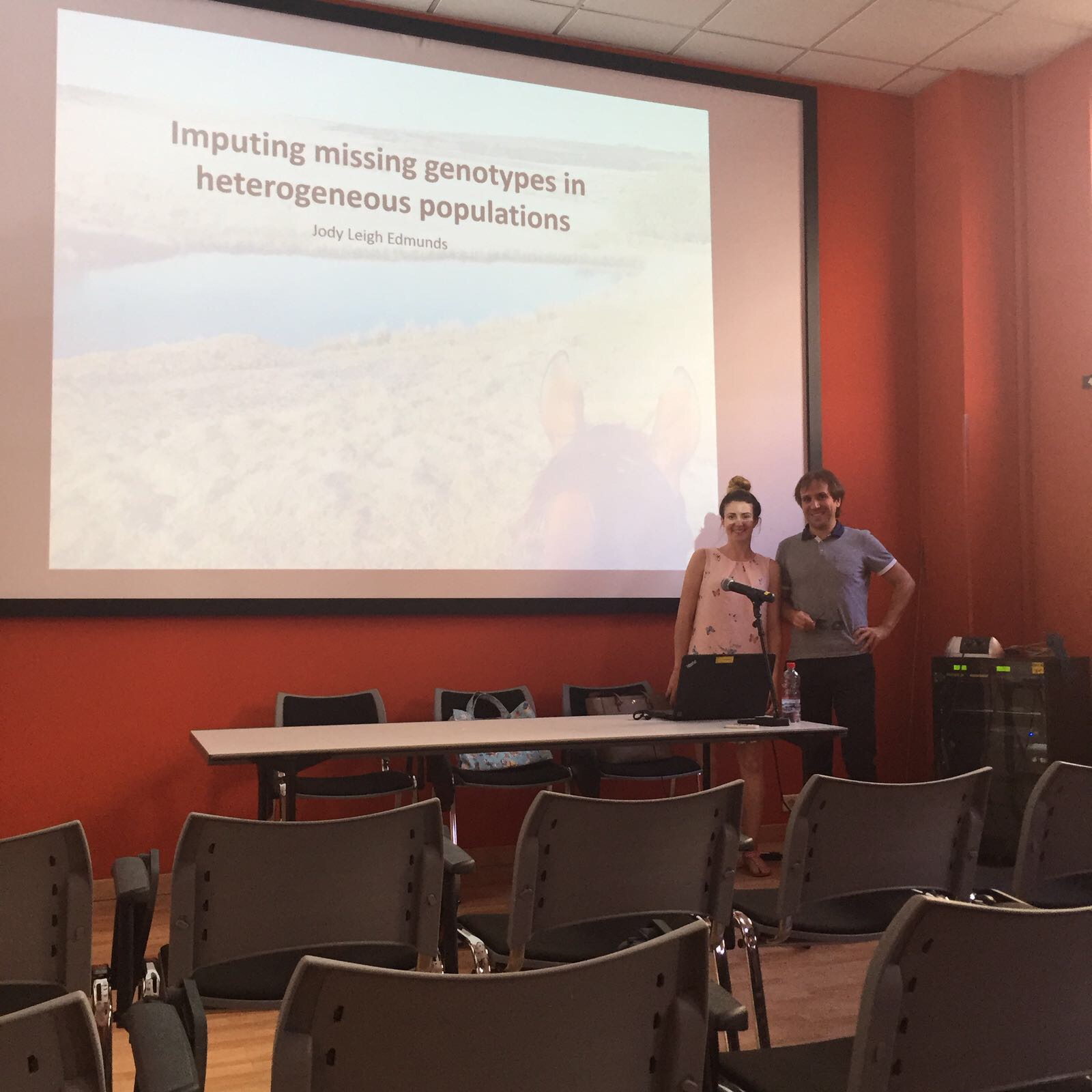 Large-scale methane measurements on individual ruminants for genetic evaluations
Large-scale methane measurements on individual ruminants for genetic evaluations
Blog STSM Jody Leigh Edmunds.
Name: Jody Leigh EdmundsInstitution: Cardiff University
Research Interest: The mitigation of global key issues (particularly enteric methane) whilst maintaining/improving high animal welfare standards and sustaining agriculture and livestock farming for the future.
Summary of the research completed: A workflow was successfully developed utilising various statistical packages (e.g. R, PLINK, Zanardi and Beagle) to estimate the accuracy imputation of missing genotypes in heterogeneous livestock populations, focusing on the impact on the prediction accuracy. The data comprised of both genotypic and phenotypic datasets and was subject to various scenarios including, population size and structure and percentage of missing data, all of which had an effect on imputation accuracy. Specific scenarios were selected for analysis with phenotypic data on rumen methane emissions, identifying relations between imputation and population parameters on the prediction accuracy of methane production. Conclusions drawn strengthen predictions of anthropogenic green house gas emissions thus, assisting their mitigation and sustainable livestock breeding.
Synthesis and application: The computational workflow was comprised of four key stages; Data Preparation, Injection of missing data, imputation of missing data and accuracy assessment which was either followed by the phenotype assessment or the presentation of accuracies. The workflow was run on 24 different scenarios (e.g. single breed, mixed) and was designed to read and convert data sets and select specific sample sizes and proportions of random missing data from the original data set. Missing data was then subject to imputation using the Zanardi (Marras et al., 2016) and Beagle (Browning and Browning, 2007) programs to obtain a complete dataset again. The accuracy of this imputation was assessed in R for the total accuracy and the accuracy of AA, AB and BB genotypes. The impact of imputation accuracy on the prediction of methane emission was assessed using the R package GROAN (https://cran.r-project.org/web/packages/GROAN/) and required both the imputed genomic data and the phenotypic data in terms of ruminal methane production (g/d). R was used to visually present the data using packages such as ggplot2 so that data could be interpreted effectively.
Wider benefits of the STSM to the participant: The STSM will benefit the participant in further work with SNP chip data analysis and provided her with skills that can be utilized throughout her PhD and bioinformatics career. The STSM allowed the participant the opportunity to present at a seminar for colleagues and staff of the National research council, Milan, an opportunity that was readily accepted by both parties. Furthermore, this work should result in a publication of which the participant will be an author. In addition to the above, the STSM allowed the participant the opportunity to travel and experience the cultures of a different country and gain friends and colleagues with similar research interests; essential for future collaborations.
Key Outputs:
- The development of a workflow including scripts, to assess imputation accuracy, which are deposited on a git hub repository https://github.com/filippob/heterogeneousImputation.
- Successful assessment of imputation accuracy in heterogeneous livestock populations using SNP array data.
- Development of a pipeline to assess the accuracy of imputation on the prediction of phenotypic methane production.
Quote: “The STSM allowed me a great opportunity to learn from the excellent expertise at the CNRIBBA (Milan, Italy) and PTP (Lodi, Italy) and develop a new skill set beneficial to a career in bioinformatics, whilst focusing on my key research interests around livestock production.”



